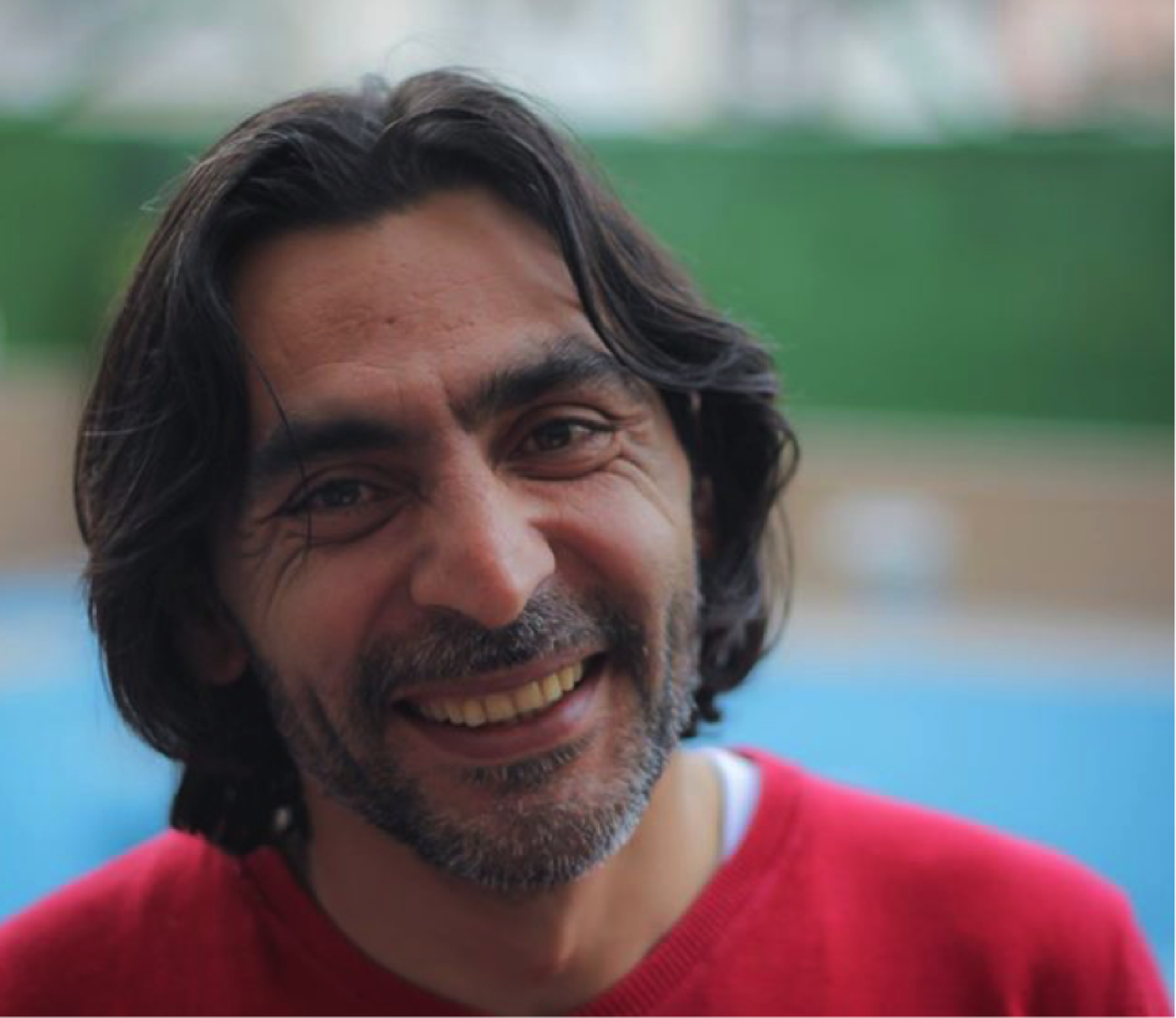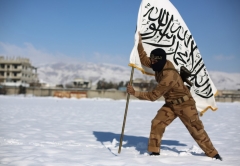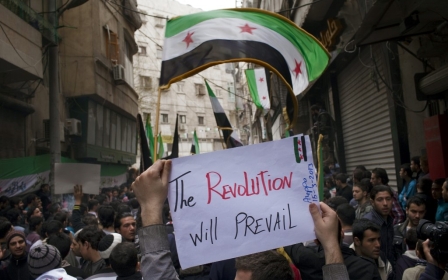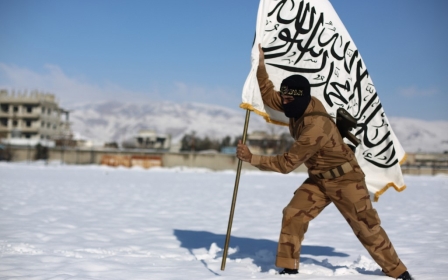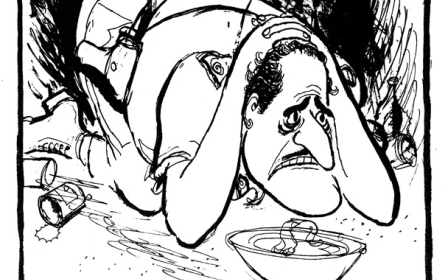Syrian activist killed by Islamic State was working on British-backed comic
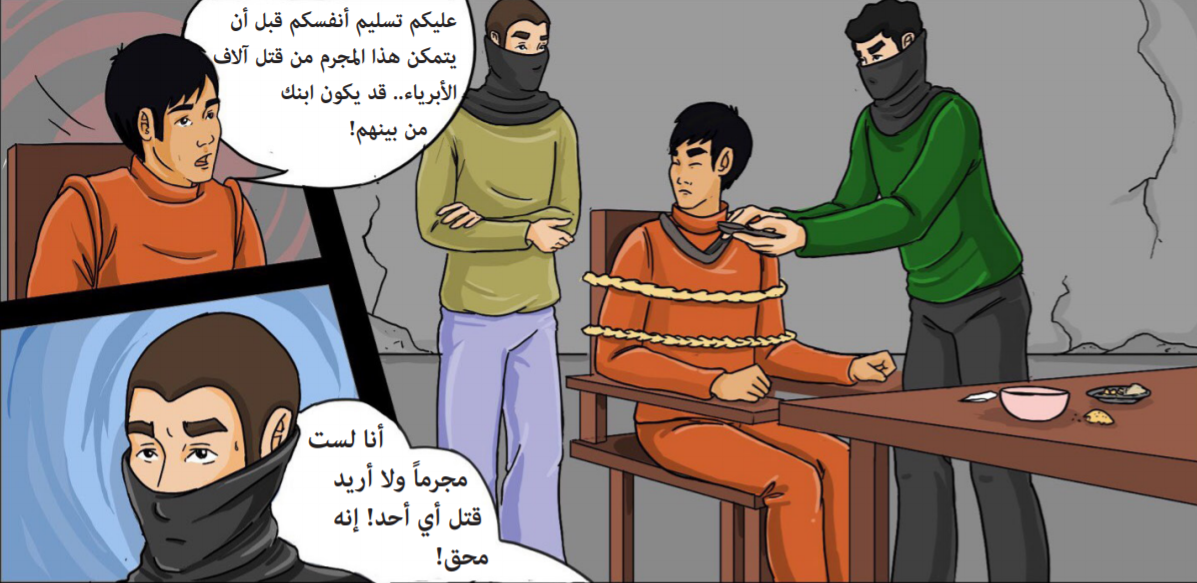
A prominent Syrian activist was editing a children's magazine that was being published as part of a covert British propaganda campaign when he was murdered by the Islamic State (IS) group in Turkey.
Naji Jerf was the editor of al-Hentawi, a comic magazine that had been devised as part of a campaign run by a communications company under contract to the UK foreign office in London.
It was aimed at 9 to 15-year olds and had been devised as a “counter-recruitment magazine” in response to IS’s own propaganda efforts, according to an internal review of what the British government termed its "strategic communications" (or "SC") in Syria seen by Middle East Eye.
Jerf was editor of al-Hentawi when he was shot dead in Gaziantep in southern Turkey in December 2015. A member of IS was subsequently jailed for life for the murder.
New MEE newsletter: Jerusalem Dispatch
Sign up to get the latest insights and analysis on Israel-Palestine, alongside Turkey Unpacked and other MEE newsletters
UK foreign office staff believe he accidentally geolocated himself while using his mobile telephone when buying food for his wife and two young daughters in a restaurant in the city.
'One of the founders of citizen journalism'
Jerf, 38, was a prominent figure in opposition circles. He had trained a large number of citizen journalists in Syria and had been involved in the Raqqa is Being Silently Slaughtered campaign, in which activists worked undercover in IS-held territory to document the militant group’s abusive rule.
Jerf was assassinated two months after IS killed two activists in the southern Turkish province of Urfa and in the same month that another was killed in Idlib. All three were working for Raqqa is Being Silently Slaughtered.
“Jerf was one of the founders of citizen journalism in Syria. He produced works early in the revolution, and participated in countless projects,” Sultan Jalabi, a journalist who worked with him for several months, told MEE.
REVEALED: The UK's covert propaganda campaign in Syria
+ Show - HideIn February, a Middle East Eye investigation revealed details of a British government propaganda campaign in Syria which sought to promote the UK's strategic interests through support for the “moderate armed opposition”.
MEE is now publishing details of an internal assessment revealing concerns and divisions within government about the effectiveness and appropriateness of that campaign. It reveals the work was being conducted despite concerns that it was illegal. Many risking their lives as citizen journalists and activists on the ground were not aware of London's involvement.
Some Syrian activists involved in British-backed projects have defended the work, saying they were dependent on western support for funding. Some complain that western countries should have done more to support the opposition and that support for their work dried up as the war tilted in Damascus's favour. Others say the work may have been counterproductive.
Hasan Borhan, a former editor of a French-based Syrian news agency, added: “Jerf trained hundreds in citizen journalism, creating a complex network in the east of Syria monitoring [human rights] violations."
He went on to say: “The opposition is poor and cannot build integrated press institutions. All sectors of the revolution since its inception in 2011 are funded from abroad,” adding that the "source of Jerf's funding does not change anything of his person or the importance of his works and their impact.”
Jerf was aware that his wider work had put him in the sights of IS: he had been about to leave Turkey with his family, having been granted asylum in France after facing a series of death threats.
His widow, Bushra Qashmer, now lives in France. She declined to talk to MEE, saying that she avoids talking to all media outlets.
Jerf’s brother Muhammad said his application for asylum in France was initially rejected, and subsequently approved through an appeal.
Although some citizen journalists working in Syria did not realise that their work was being sponsored through British government contracts, MEE understands that Jerf was aware he was working for a UK government project.
Amal Salamat, a Syrian journalist, said Jerf always thought carefully about ways to protect journalists and to seek the release of prisoners of conscience.
When Syrian intelligence arrested her husband, the journalist Jihad Mohamed, Salamat said she had received significant moral support from Jerf.
Salamat said: “Jerf published an article highlighting the arrest of my husband, in Hentah, a local newspaper he ran... Sources of financing certainly affect editorial policy, but Jerf’s work has been neutral. Knowing the source of the funding does not alter the value of his work.”
Raqqa 2035
Al-Hentawi blended entertainment and science with a cartoon story about three American children with Syrian parents travelling to the country in the year 2035.
An extract from 'The Sons of al-Henta', published in edition four of Hentawi. Slide left for the original Arabic and right for the English translation (hentawi.com)
The comic sought to inspire its young readers by highlighting the success stories of role models such as athletes, entrepreneurs and leaders.
It also introduced its readers to terms and concepts such as equality, democracy and human rights, and had a general knowledge and games sections.
According to an internal review of the UK’s propaganda programmes, carried out during 2016, the comic’s content was “regularly reviewed by teachers to ensure it is appropriate for this age group and does not expose children to negative messaging”
Slide left for the original Arabic and right for the English translation (Hentawi.com)
As well as producing comics, magazines, news reports and social media, communications companies working for the UK’s propaganda programme also produced animated films.
Cannes film festival
One, entitled Goal to Syria, is about a young footballer who scores the winning goal in the 2027 Asia Cup final, years after he had been dug out of the rubble of a bombed building.
The film went on to be shown in the short animation section of the Cannes film festival in 2016. The internal government review noted that Al Jazeera had hailed the film as a “symbolic, global recognition of the justice of the Syrian revolution”.
It added: “Such exposure, unattributed to its funding source, contributes to the overall UK strategic communications objectives for Syria by successfully promoting the moderate opposition”.
The review was scathing about the UK’s propaganda initiatives as a whole, however, concluding that they were incoherent, poorly planned, probably contravened UK law and cost lives.
Earlier this year MEE disclosed that as part of its propaganda initiatives in Syria, the British government covertly established a network of citizen journalists across Syria during the early years of the country’s civil war in an attempt to shape perceptions of the conflict.
Frequently, the individuals who were recruited were unaware that they were being directed from London. A number were killed during the conflict.
Initial blueprints for at least three of the five British propaganda programmes were drawn up by an anthropologist working in counter-terrorism for the UK foreign office in London.
The foreign office declined to comment and did not respond to a series of questions about its propaganda operations in Syria.
It would not say how many Syrian activists were killed while working on UK propaganda operations, nor say whether the British government or its contractors are caring for any of their dependents.
Nor would it comment on the internal review’s warning that there was a “major risk” that the propaganda operations contravened UK law.
Middle East Eye delivers independent and unrivalled coverage and analysis of the Middle East, North Africa and beyond. To learn more about republishing this content and the associated fees, please fill out this form. More about MEE can be found here.


